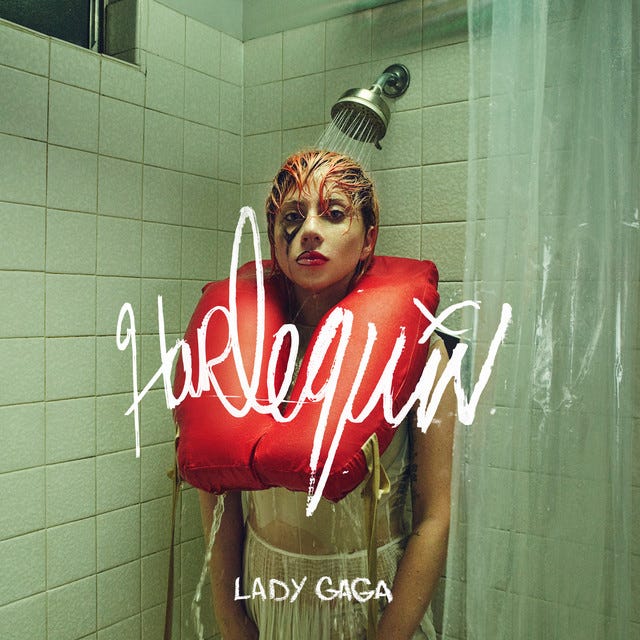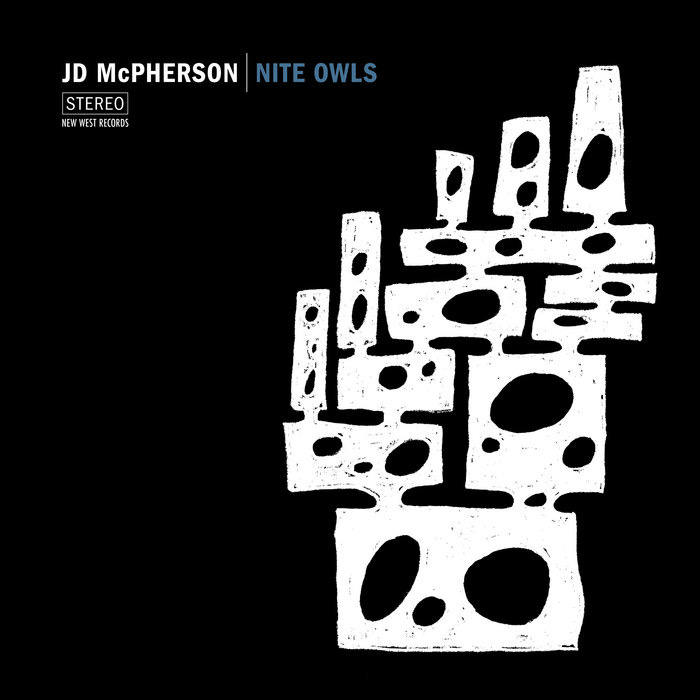On the Stereo: Coldplay, Lady Gaga, Eric Clapton
Plus Robyn Hitchcock revisits 1967, a terrific album from JD McPherson and a terrible one from Luke Bryan.
Coldplay—Moon Music [2024]
Listening to Moon Music, the latest installment in Coldplay's relentlessly cheerful middle act, it occurred to me that the last time I wrote a word about the quartet was when this period started with the release of A Head Full of Dreams in 2015. Back then, I described the album as the "21st century equivalent of Steve Winwood's Back in the High LIfe, a divorce record where every end seems like a fresh new beginning," reaching the conclusion that "Coldplay cheerfully embrace the cheese, ratcheting up both the sparkle and the sentiment so the album feels genuine in its embrace of eternal middle-aged clichés."
Reading that, I can tell that I assumed A Head Full of Dreams would be a passing phase, not the start of a decade's worth of incessant positivity. Coldplay rushed away any suggestion of moodiness, swapping Brian Eno for producers Stargate, a path that led them straight to Max Martin, the Chainsmokers and a host of other collaborators that blend pop, dance, electronica, and other related realms. Eno resurfaces briefly on Moon Music, the new album that's something of an explicit sequel to 2021's Music of the Spheres, one of a host of co-writers on the closing "One World," a dreamy number that nods at ambient before inevitably resolving on a note of inspiration. His fleeting presence underscores how his albums with Coldplay always ventured into the unexpected, while the band's current cast of collaborators seek to speak in a universal language. The quest for a common bond yields music where the melodies are as amorphous as the textures, eventually shape-shifting into platitudes that inadvertently recycle old hits; there's no way Coldplay meant for "WE PRAY" to conjure the ghost of MC Hammer yet it certainly does.
Moon Music is filled with moments like this, where Coldplay stumbles into hackneyed framing, seemingly unaware that they've discovered a cliché. The glassy production somehow flattens the difference between the nimble acoustic guitar riffs of "Jupiter" and Eurodisco onslaught of "GOOD FEELiNGS," transforming the album into a sunny lingua franca designed to be played in hotel lobbies, waiting rooms, and shopping malls all around the world. Since it's so glossy, it can glide into these different settings with ease but its universality is so untethered to specific experience, Moon Music never seems worldly. Coldplay is so enamored with the idea that they're creating good vibes they become completely oblivious to how they're drifting into territory that's irredeemably tacky.
Lady Gaga—Harlequin [2024]
A surprise release from the days when it seemed as if Joker: Folie à Deux was destined to be a blockbuster, Harlequin finds Lady Gaga returning to the territory she initially explored alongside Tony Bennett: the Great American Songbook. Where the Bennett records played it safe by mirroring the sound and feel of long-players from the glory days of hi-fi stereo systems, Harlequin is deliberately snazzier. "Get Happy" gets a bit of an electric guitar crunch, "When the Saints Go Marching In" (retitled "Oh, When the Saints" for some reason) pulsates to showbiz funk. The latter telegraphs how the whole affair feels stuck in a Nixon-era netherworld, existing in a plane where Anthonly Newley rubs shoulders with Burt Bacharach. Gaga naturally seems at home in this splashy setting, singing with such gusto that she almost seems to ignore the conscious camp of the arrangements. Her spirited performances don't erase the fact that Harlequin feels like a relic, like a soundtrack to a forgotten telethon from the days before MTV.
Eric Clapton—Meanwhile [2024]
Like most Eric Clapton albums from the last decade and a half, Meanwhile arrived with little fanfare earlier this month, slipping onto streaming services without much notice. Its quiet release reflects Clapton's diminished stature as a guitar god. His reputation took a serious beating earlier this decade, due to his anti-vax stance highlighting a rightward slant in his politics that ran all the way back to his support of Enoch Powell in the 1970s. (David Browne did an excellent job untangling this narrative for Rolling Stone back in 2021.)
Truth be told, Clapton's star started to dim long before the uproar of the early 2020s. He drifted away from major labels with Old Sock, a 2013 album built for comfort, not speed. The same sentiment can be said of Meanwhile, which is so relaxed it could be called cozy. Some of its familiarity is due to how Meanwhile recycles eight songs previously released as singles during the period when the COVID-19 lockdown drove Clapton into an alliance with his fellow '60s survivor Van Morrison. Their three collaborations are all here, alongside a few other singles that could conceivably be seen as topical: from 2022, "Pompous Fool" could be seen as a swipe at any idiot occupying government, while the 2021 ballad "Heart of a Child" encourages either anti-war or anti-gun readings. What unites all of these songs is a slick, polished groove that by no means matches the lyrical defiance. Morrison's spitting bluster on the triptych of multipurpose anti-authority numbers—"The Rebels," "Stand and Deliver" and "This Has Gotta Stop"—does cut against the restrained groove of Clapton's band but that's not enough to lend this album energy; they seem to be put on the album because those are the recordings EC had ready to go. Meanwhile is littered with this kind of material, tracks seem bussed in from another project. There's the mellow R&B of "How Could We Know," sung with from Prince protege Judith Hill and Daniel Santiago; a sleepy rendition of the standard "Smile"; a version of "Always on My Mind" with Bradley Walker, a country singer with ties to Clapton's Crossroads Guitar Festival—he appeared there in 2019 with Vince Gill—who is a current mainstay on the Christian Albums chart with several Dove nominations to his name.
Walker's presence could be read as a possible political dog whistle but, the truth is, that would require Clapton to be purposeful and Meanwhile feel as if it was assembled with no overarching ambition. He had enough material at hand for an album, so an album is what materialized. That slackness could conceivably be ingratiating as background music but it's telling that the most memorable moment on Meanwhile is "Moon River," a duet performed with the late Jeff Beck released as a sweet tribute to his successor in the Yardbirds. Beck spends the song gliding and soaring over Clapton, his tone and phrasing pushing his peer into the background on his own album.
JD McPherson—Nite Owls [2024]
Nite Owls comes swaggering out the gates with "Sunshine Getaway," a slinky rocker that plays like Marc Bolan visiting a dive bar. JD McPherson doesn't precisely sustain this vibe throughout his fifth album yet its glammy swing does indicate how the roots rocker isn't quite a straight up revivalist this time around. Playing around with surf rock twang, new wave attitude, and grimy garage textures, McPherson strikes a defiant, playful stance without abandoning his song smarts, a combination that makes Nite Owls his liveliest record yet.
Robyn Hitchcock—1967: Vacations in the Past [2024]
A companion to his recent memoir 1967: How I Got There and Why I Never Left, 1967: Vacations in the Past finds Robyn Hitchcock revisiting personal favorites from that pivotal year in pop music history. Anybody as well-versed in '60s pop and psychedelia as Hitchcock won't necessarily find any of his selections obscure—his fans know the Incredible String Band and Tomorrow—but it's also nice that he threads these relatively left-field choices into an album anchored by Pink Floyd, the Beatles, the Kinks, Procol Harum and the Small Faces chestnuts. What's nice about these low-key acoustic arrangements is that they're faithful to the spirit of the song, not the sound; this isn't nostalgia, they're living, breathing interpretations from an artist who still finds sustenance in these old songs.
Luke Bryan—Mind of a Country Boy [2024]
Maybe there's something about working on American Idol that calcifies the soul because Luke Bryan's Mind of a Country Boy is as large a misfire as 143, the recent record by his TV co-star Katy Perry. The two suffer opposite problems. Perry ran into trouble attempting to revive her glory days, Bryan sticks with tried-and-true collaborators who are happy to adhere to the same old formula, making such minimal tweaks to his amiable country-pop that they're basically imperceptible. Bryan sings with an audible grin which may be the only way to deliver such cornball pap as "Country On" and "Fish on the Wall," which feel like laundry lists of country signifiers. It's not that Bryan's in on the joke, it's that he's relying on shtick, never bothering to disguise his showbiz moves for the audience. It all sounds so artificial, it almost seems like he's treating his audience with contempt.








